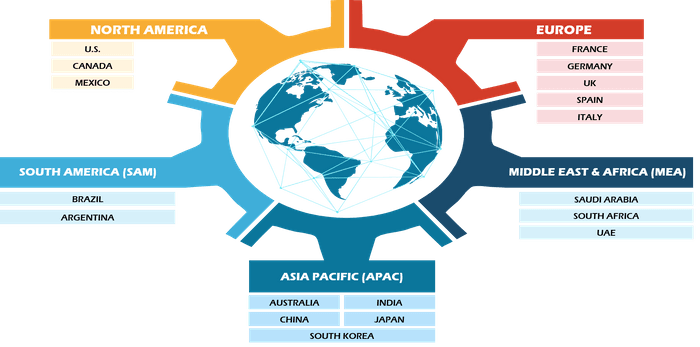Printed Circuit Boards (PCBs) are the backbone of modern electronics, serving as the platform upon which electronic components are mounted and interconnected. Two prominent materials used for manufacturing PCBs are glass and ceramic. Glass PCBs and ceramic PCBs each have their unique characteristics and are employed in various applications. In this article, we will delve into the world of glass PCB and ceramic PCB manufacturers, exploring their manufacturing processes, advantages, and applications.
Glass PCB Manufacturers
-
Fx PCB Corporation:
- Background: Fx PCB Corporation is a renowned manufacturer of advanced materials, including glass PCBs. With decades of experience, they have established themselves as leaders in the industry.
- Product Range: Fx PCB offers a variety of glass-based laminates, such as RO3000, RO4000, and RO4400, tailored for different applications. These materials provide excellent electrical performance and are suitable for high-frequency applications.
- Advantages: Fx PCB‘ glass PCBs offer low dielectric constant (Dk) and low loss, making them ideal for high-frequency circuitry. They also provide superior thermal management and dimensional stability.
- Applications: Glass PCBs from Fx PCB Corporation find applications in aerospace, automotive, telecommunications, and military industries.
-
Isola Group:
- Background: Isola Group is a global manufacturer of PCB materials, including glass laminates. They have a wide customer base and a strong reputation in the industry.
- Product Range: Isola offers glass epoxy laminates like IS410 and IS620, suitable for a broad spectrum of applications. These laminates exhibit good electrical properties and mechanical strength.
- Advantages: Isola’s glass PCB materials provide high electrical insulation, excellent solderability, and good thermal performance. They are also environmentally friendly.
- Applications: Isola’s glass PCBs are used in automotive electronics, industrial controls, and consumer electronics, among other industries.
-
Taconic Advanced Dielectric Division:
- Background: Taconic is a well-established manufacturer of advanced dielectric materials, including glass-reinforced laminates. They are known for their high-quality products.
- Product Range: Taconic offers products like TLY, TLX, and RF-60A, which are suitable for RF/microwave applications. These materials have low Dk and low loss properties.
- Advantages: Taconic’s glass PCB materials excel in high-frequency performance, with low signal loss and good impedance control. They also have excellent thermal stability.
- Applications: Taconic’s glass PCBs are used in wireless communication systems, radar systems, and satellite communication equipment.
Ceramic PCB Manufacturers
-
Kyocera Corporation:
- Background: Kyocera is a global leader in ceramic PCB manufacturing. They leverage their extensive experience in ceramics to produce high-quality PCBs.
- Product Range: Kyocera manufactures a range of ceramic PCBs using materials like alumina (Al2O3) and aluminum nitride (AlN). These materials offer excellent thermal conductivity.
- Advantages: Kyocera’s ceramic PCBs excel in thermal management, making them suitable for high-power applications. They also have good electrical insulation properties.
- Applications: Kyocera’s ceramic PCBs are used in power electronics, LED lighting, and automotive electronics, where thermal performance is critical.
-
CeramTec:
- Background: CeramTec is a global manufacturer of advanced ceramics, including ceramic PCBs. They have a strong presence in various industries.
- Product Range: CeramTec offers ceramic PCB materials like Alunit® and Al2O3. These materials are known for their high thermal conductivity and electrical insulation.
- Advantages: CeramTec’s ceramic PCBs are ideal for applications requiring exceptional thermal dissipation and reliability. They also provide good mechanical stability.
- Applications: CeramTec’s ceramic PCBs are used in power modules, motor drives, and LED applications, where heat management is crucial.
-
Murata Manufacturing Co., Ltd.:
- Background: Murata is a well-respected manufacturer of electronic components and materials, including ceramic PCBs. They have a global presence and extensive research capabilities.
- Product Range: Murata offers ceramic substrates with a variety of thermal conductivities to suit different applications. Their materials are highly reliable.
- Advantages: Murata’s ceramic PCBs offer excellent thermal performance and electrical insulation. They are also compact and lightweight.
- Applications: Murata’s ceramic PCBs are widely used in smartphones, tablets, and other consumer electronics, where space constraints and thermal management are critical.
Comparison of Glass PCB and Ceramic PCB Manufacturers
-
Materials:
- Glass PCB manufacturers primarily use glass-reinforced epoxy laminates, which offer good electrical properties and dimensional stability. In contrast, ceramic PCB manufacturers use materials like alumina and aluminum nitride, known for their exceptional thermal conductivity.
-
Advantages:
- Glass PCBs excel in high-frequency applications due to their low dielectric constant and low loss properties. They are also dimensionally stable and have good thermal performance.
- Ceramic PCBs are preferred when thermal management is critical. They have excellent thermal conductivity, making them suitable for high-power applications.
-
Applications:
- Glass PCBs find applications in industries like aerospace, automotive, telecommunications, and military, where high-frequency performance is essential.
- Ceramic PCBs are commonly used in power electronics, LED lighting, and automotive electronics, where thermal management and reliability are crucial.
-
Environmental Impact:
- Both glass and ceramic PCBs can be environmentally friendly depending on the manufacturing processes and materials used. Manufacturers are increasingly adopting sustainable practices.
Conclusion
In the world of electronics, the choice between glass PCBs and ceramic PCBs depends on the specific requirements of the application. Glass PCB manufacturers like Rogers Corporation, Isola Group, and Taconic offer solutions for high-frequency applications with excellent electrical performance. On the other hand, ceramic PCB manufacturers like Kyocera Corporation, CeramTec, and Murata Manufacturing focus on thermal management and reliability in high-power applications.
Selecting the right PCB material and manufacturer is crucial to the success of electronic products. Engineers and designers must carefully consider the application’s requirements, including frequency, power, thermal management, and space constraints, to make an informed decision between glass and ceramic PCBs. Both materials have their strengths, and choosing the right one can significantly impact the performance and reliability of electronic devices in various industries.





